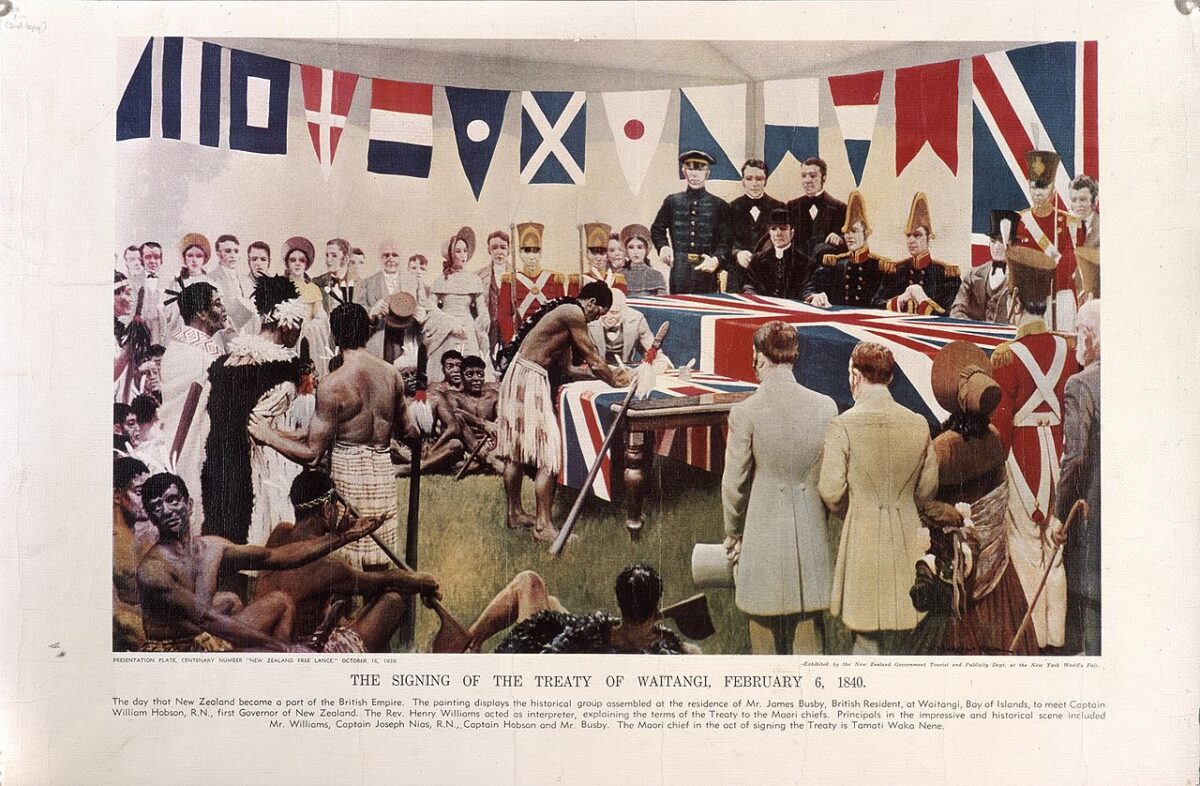Don Brash
bassettbrashandhide.com
Don Brash was Reserve Bank governor from 1988 to 2002, and National Party leader from 2003 to 2006.
On 13 May Newsroom carried a column by four writers at Victoria University under the heading “Commitments to equality in Te Tiriti mean co-governance”. In attacking those who disagree with that proposition, they particularly cited Hobson’s Pledge, for which I am one of two spokespeople.
But in arguing that Te Tiriti requires a radical departure from democratic principles in favour of co-governance what they fail to explain is why their arguments differ so fundamentally from what nearly every authority on the Treaty has believed since 1840.
They fail to note that Governor Hobson said, as each chief signed the Treaty, “Now we are one” – he certainly didn’t say, “Now we are two and shall remain ever thus.”
They fail to quote any of the speeches made by Maori chiefs at Waitangi before the Treaty was signed, many of them strongly opposing the Treaty because they recognised that in signing it they would be surrendering power to a higher authority.
They fail to quote any of the speeches made by Maori chiefs at Kohimarama in 1860, speeches in which chief after chief applaud the benefit of the Queen’s sovereignty.
They fail to quote iconic Maori statesmen like Sir Apirana Ngata or Sir Peter Buck who had not the slightest doubt that Te Tiriti involved the surrender of sovereignty.
They fail to acknowledge more recent translations of Te Tiriti, such as that by Professor Sir Hugh Kawharu, who translated the three Articles of the Treaty as:
1. The Chiefs of the Confederation and all the Chiefs who have not joined that Confederation give absolutely to the Queen of England for ever the complete government over their land.
2. The Queen of England agrees to protect the Chiefs, the Subtribes and all the people of New Zealand in the unqualified exercise of their chieftainship over their lands, villages and all their treasures.
3. For this agreed arrangement therefore concerning the Government of the Queen, the Queen of England will protect all the ordinary people of New Zealand (ie the Maori) and will give them the same rights and duties of citizenship as the people of England.
There was absolutely nothing in Te Tiriti about guaranteeing equal outcomes (as claimed by some of those arguing why we need a separate Maori health authority), only a strong commitment to “the same rights and duties of citizenship”.
And have Maori been able to avail themselves of these equal rights? Certainly, and especially since the advent of MMP more than 20 years ago. Two years ago, the leader and deputy leader of the National Party, the leader and deputy leader of New Zealand First, the deputy leader of the Labour Party, the co-leader of the Greens and the leader of the ACT Party were all Maori. In the present government, the percentage of Maori ministers considerably exceeds the proportion of Maori in the general population. Maori have shown themselves absolutely able to foot it with other New Zealanders in a democratic polity, where every person, irrespective of race or religion, has an equal vote.
And the co-governance alternative that the authors advocate? It is inconceivable that the 85 per cent of New Zealanders who do not identify as Maori will willingly concede 50 per cent of the political power to those New Zealanders who have some, often quite small, percentage of Maori heritage. Especially is this true given that nowhere in the world has such a lop-sided arrangement lasted for long.
The only way to an harmonious future is to ensure that all citizens have equal political rights, and to deal effectively with social and other problems wherever they arise, irrespective of ethnicity.

